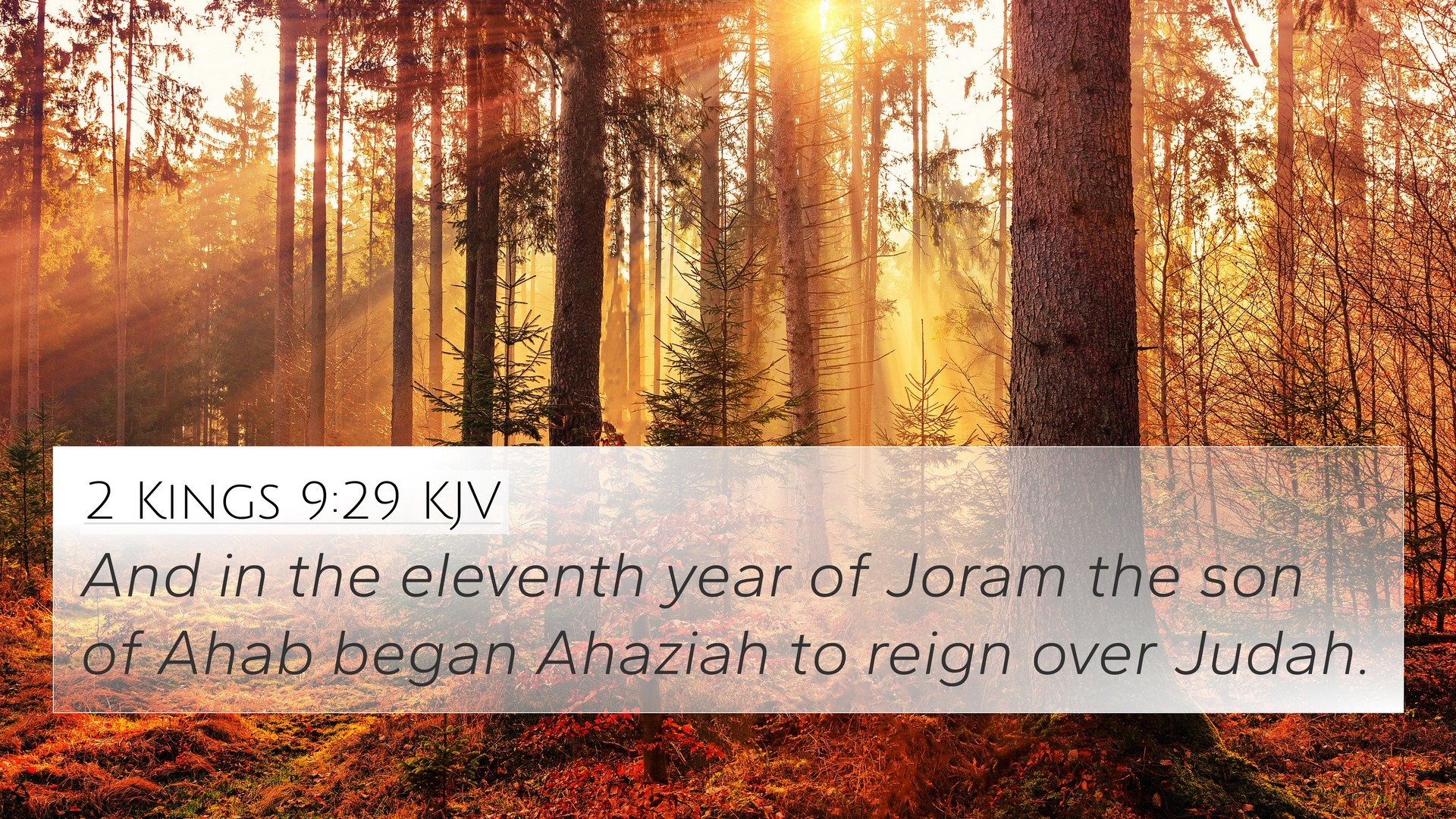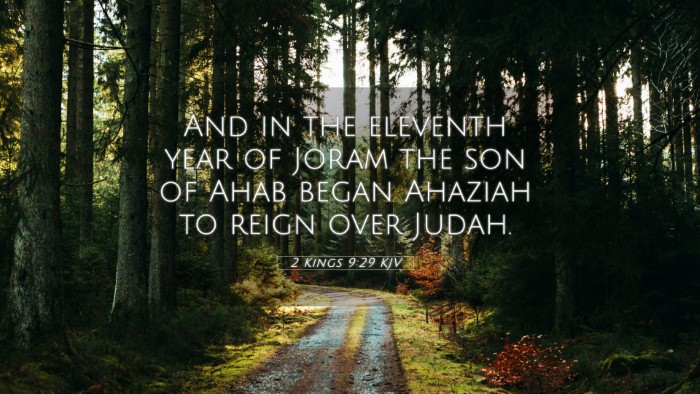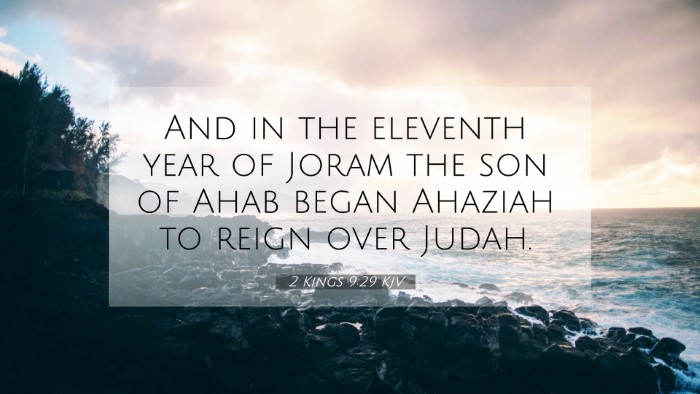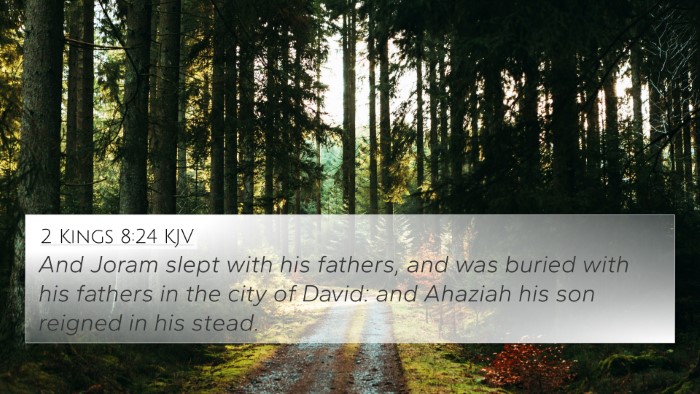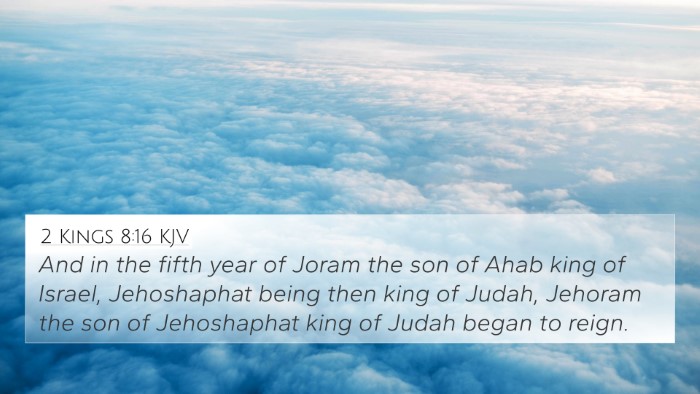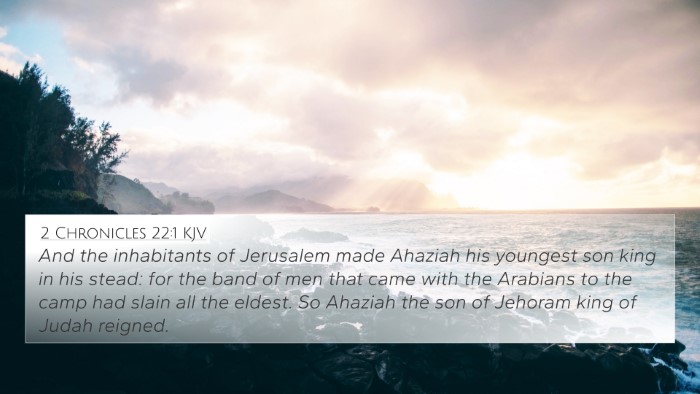Understanding 2 Kings 9:29
2 Kings 9:29 states: "And in the eleventh year of Joram the son of Ahab began Ahaziah to reign over Judah." This verse marks a significant moment in the transition of power within the kingdoms of Israel and Judah, specifically focusing on the reign of Ahaziah. This passage reflects the intertwining destinies of these two kingdoms as they navigate the tumultuous political landscape surrounding them.
Contextual Overview
This verse occurs in a critical historical framework, detailing the ongoing conflict, idolatry, and moral decline that characterize the reign of Ahab and the influence of Jezebel. As indicated in Matthew Henry's commentary, these kings ruled during a time fraught with challenges not only from external enemies but also from internal strife and divine judgment.
Thematic Significance
- Interconnected Kingdoms: The verse exemplifies the connection between the northern kingdom of Israel and the southern kingdom of Judah. Ahaziah's rise as a king following Joram's reign creates a bridge for understanding their shared history and prophetic destiny.
- Fulfillment of Prophecy: According to Albert Barnes, this transition relates to the prophetic judgments against Ahab’s lineage, highlighting God's sovereignty in elevating and removing kings in accordance with His will.
- Moral and Spiritual Decline: The commentary by Adam Clarke indicates that Ahaziah's ascension signifies a continuation of the corrupt practices initiated by his predecessors, demonstrating the persistent cycle of sin within the Israelite monarchy.
Bible Verse Cross-References
Several scripture passages interrelate with 2 Kings 9:29, showcasing the deeper thematic connections within the Bible. Below are key cross-references:
- 1 Kings 16:29-33: Details Ahab's reign and the introduction of idolatry into Israel.
- 2 Kings 8:25-27: Discusses Ahaziah's predecessor and the link between the two kingdoms.
- 2 Chronicles 22:1-3: Offers insight into Ahaziah’s character and the influence of his mother, Athaliah.
- 2 Kings 10:11: Indicates the fate of Ahab's descendants, linking to the consequences of their reign.
- 1 Peter 2:13-14: Offers a New Testament perspective on governance and authority, linking back to the idea of God’s sovereignty.
- Jeremiah 22:18-19: Speaks about the mourning of the king's death, resonating with the themes of judgment and legacy.
- Revelation 19:16: Reflects on Christ's ultimate authority over all kings, reinforcing the idea of God's control over history.
Inter-Biblical Dialogue
The connections between the Old and New Testaments illuminate God's sustained interaction with His people. The linkage found in the thematic study of kings portrays how the leadership choices within ancient Israel echo throughout biblical history, culminating in the teachings and reign of Jesus Christ.
Tools for Bible Cross-Referencing
To further explore connections between Scriptures, consider utilizing resources such as:
- Bible concordance
- Bible cross-reference guide
- Cross-reference Bible study tools
- Comprehensive Bible cross-reference materials
Bible Study Application
Understanding 2 Kings 9:29 encourages a reflective approach to scripture, challenging readers to consider the implications of leadership, the consequences of moral decline, and the overarching sovereignty of God. It invites believers to connect this historical narrative to their own spiritual lives and the wider Biblical context.
Thematic Bible Verse Connections
- Historical integrity and prophetic connection within the kings of Israel.
- The cyclical patterns of sin and judgment throughout Israel's history.
- The enduring sovereignty of God over nations and kings.
- Lessons on idol worship and its impact on society.
